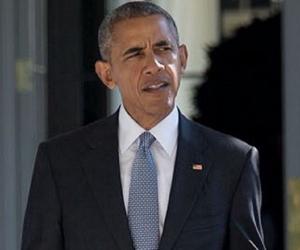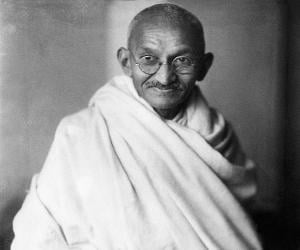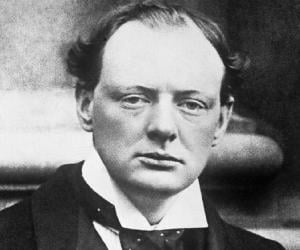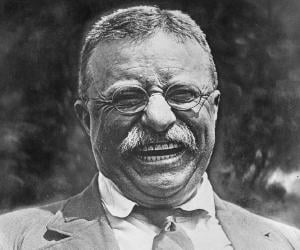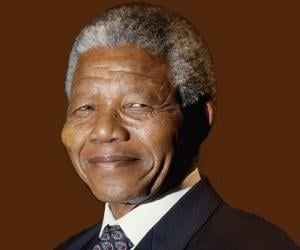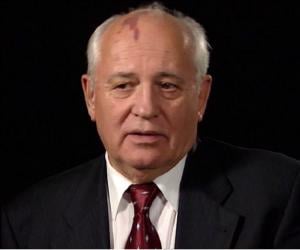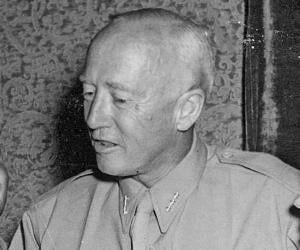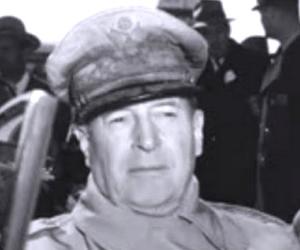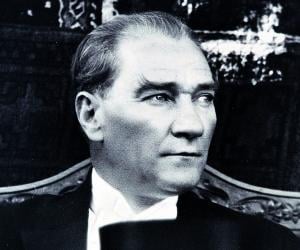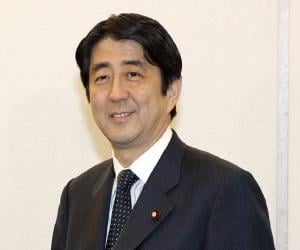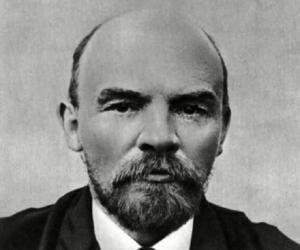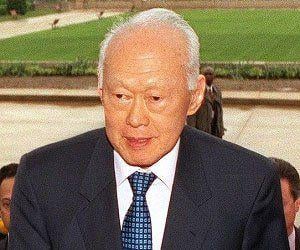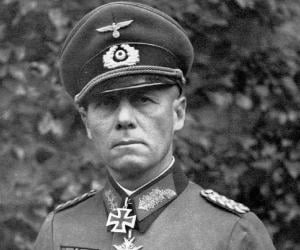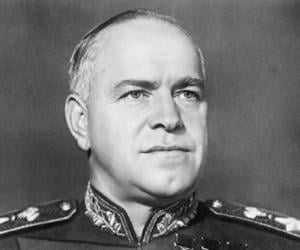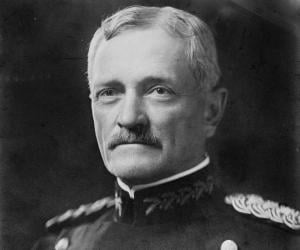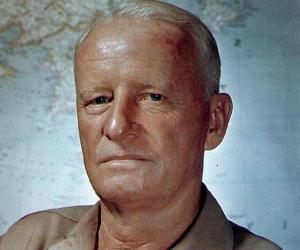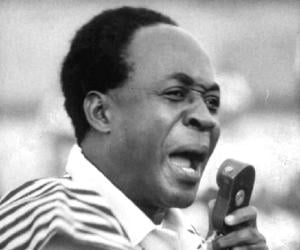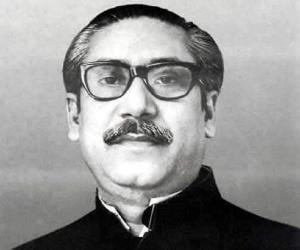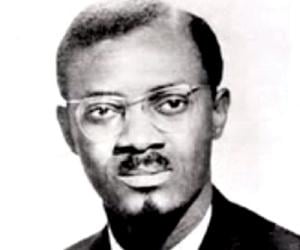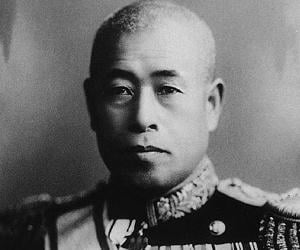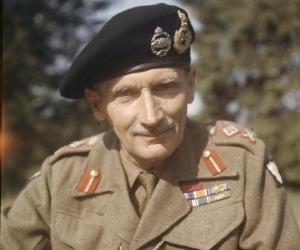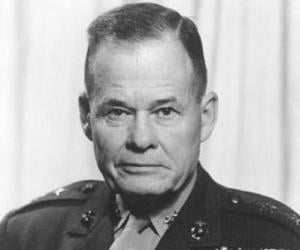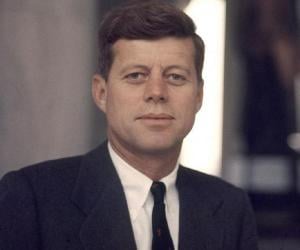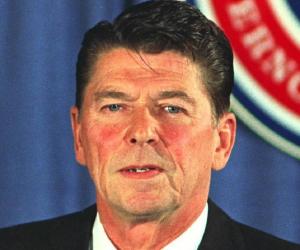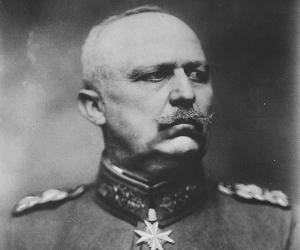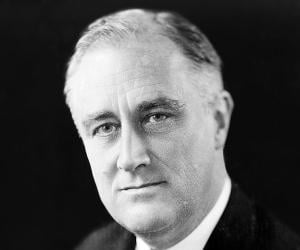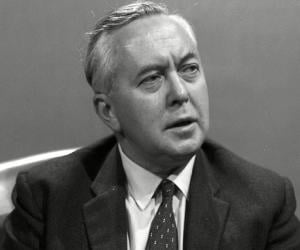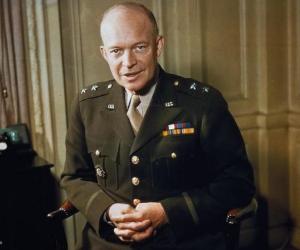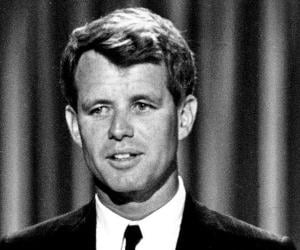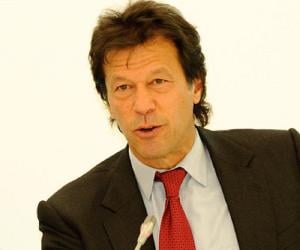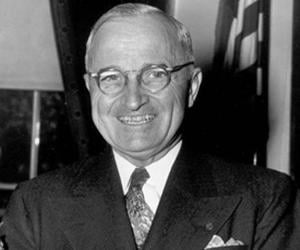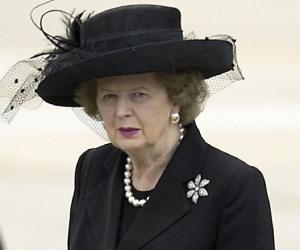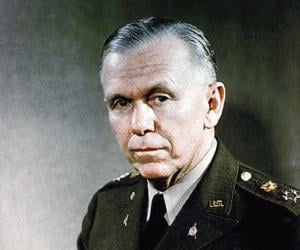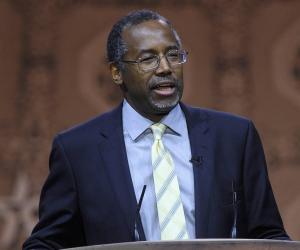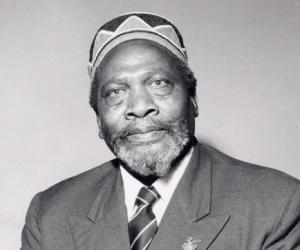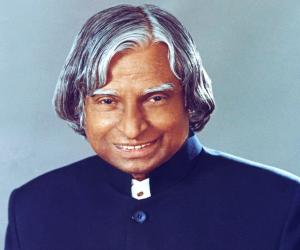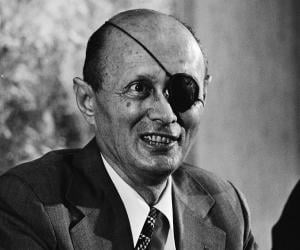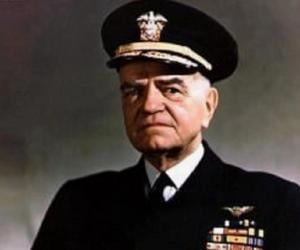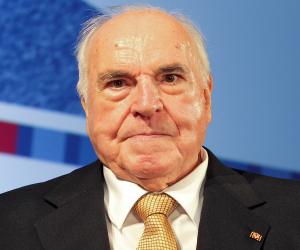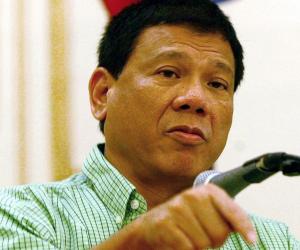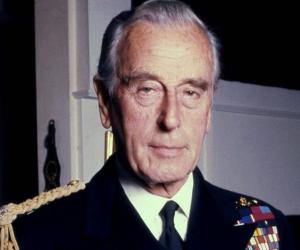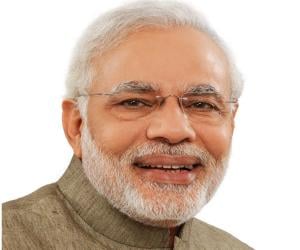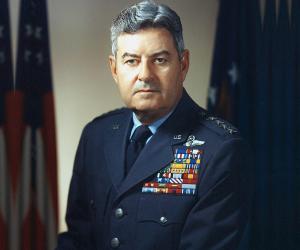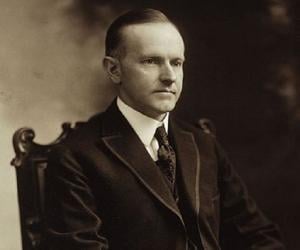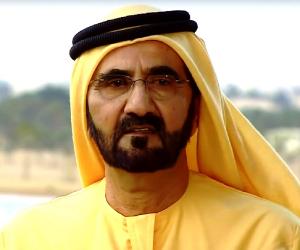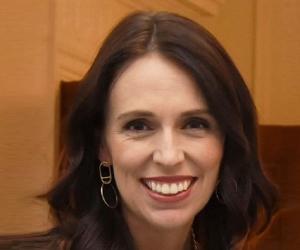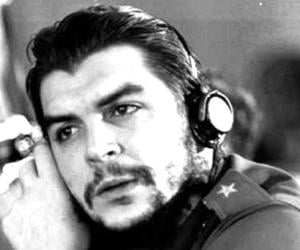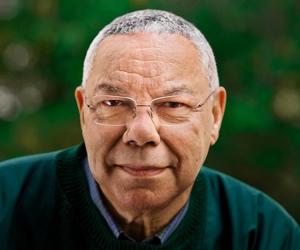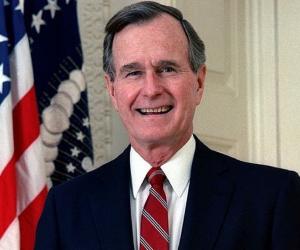Former President of the United States, Barack Obama, has the distinction of being the first African-American president of the nation. A civil rights attorney and an academic, he has been credited with bringing about a significant improvement in America’s reputation abroad. His efforts to strengthen international diplomacy was recognized with the 2009 Nobel Peace Prize.
An Indian lawyer and anti-colonial nationalist, Mahatma Gandhi was a major figure in India’s fight for independence from British rule. He is renowned for his employment of non-violent resistance and civil disobedience methods. Despite his popularity, he had numerous detractors as well and was assassinated in 1948. He is widely considered the Father of the Nation in India.
The former Prime Minister of the United Kingdoms, Winston Churchill, is known for successfully leading his country during the Second World War against the Nazi Germany. An officer in the British army, he also served as a war correspondent before venturing into politics. One of the most influential peoples in British history, Churchill was also an accomplished painter.
A leader in the civil rights movement in the mid-twentieth century, Martin Luther King Jr. is best remembered for advancing civil rights through nonviolence and civil disobedience. A man of Christian faith who was inspired by Indian freedom fighter Mahatma Gandhi’s nonviolent activism, he was honored with the Nobel Peace Prize for fighting racial inequality.
The 26th president of the United States, Theodore Roosevelt is generally ranked as one of the five best presidents of the country. A man of many talents, he was a politician, conservationist, naturalist, and writer. He supported Progressive Era policies in the early 20th century and championed his "Square Deal" domestic policies.
Born into a poor peasant family, Mikhail Gorbachev went on to become one of the most influential figures of the Soviet Union. He served in various positions, most notably as the General Secretary of the Central Committee of the Communist Party of the Soviet Union. He is regarded as one of the most prominent personalities of the 20th century.
George Patton was a general of the US Army, remembered for his work as a commander of the Seventh United States Army during World War II. He is also remembered for commanding the Third Army in the Western Front in June 1944 after the Allied invasion of Normandy. His life and work inspired the 1970 epic biographical war film Patton.
Shinzō Abe was a Japanese politician who became the longest-serving prime minister in the history of Japan after serving as prime minister of Japan from 2006 to 2007 and then from 2012 to 2020. Aged 52 at the time of assuming office as the prime minister, Abe was also the youngest Japanese post-war prime minister.
Vladimir Lenin played a key role in the history of Russian politics by developing a political ideology called Leninism. During and after his lifetime, Lenin had a massive influence over international communist movement. He is widely regarded as one of the most influential and significant personalities of the 20th century.
Lawyer-turned-politician Lee Kuan Yew, also known as LKY, was the first prime minister of Singapore, from 1959 to 1990. He established the People's Action Party. He later also served as his country’s Senior Minister and Minister Mentor. He was also part of David Rockefeller's International Council and Forbes's Brain Trust.
Known as The Desert Fox, Nazi field marshal Erwin Rommel led the Axis forces during World War II. For his plot to assassinate Hitler in 1944, he was given a choice to either commit suicide by consuming a cyanide pill or face a trial and execution. He chose the former.
Soviet general and Marshal of the Soviet Union, Georgy Zhukov, is remembered for overseeing some of the Red Army's most decisive victories during the Second World War. As a young man, he served in the First World War and the Russian Civil War. The recipient of four Hero of the Soviet Union awards, he was made the defence minister.
John J. Pershing was a senior United States Army officer who served as the commander of the American Expeditionary Forces (AEF) in World War I. In his later years, he mentored generals who led the United States Army during World War II. He was promoted to General of the Armies rank, the highest possible rank in the United States Army.
Chester W. Nimitz was part of the United States Navy where he served as a fleet admiral. He played a key role during World War II, commanding the US Pacific Fleet and the Allied air, sea, and land forces. He also played a crucial role in acquiring approval to develop USS Nautilus, the first nuclear-powered submarine in the world.
Kwame Nkrumah was a Ghanaian revolutionary and politician. He played an important role in the independence of the Gold Coast in 1957, after which he served as the first prime minister of Ghana from 1957 to 1960 and then as the first president of Ghana from 1960 to 1966. He also played an influential role as an advocate of Pan-Africanism.
Bernard Montgomery, 1st Viscount Montgomery of Alamein, was a British Army officer who played important roles in World War I, World War II, and the Irish War of Independence. He commanded the British Eighth Army during the Second World War and also oversaw the operations during the Battle of Normandy. Bernard Montgomery has a couple of statues dedicated to him.
The 35th President of the United States, John F Kennedy was a charismatic leader who, during his tenure, ably dealt with Cuban missile crisis, proposed public service programmes and lent support to the growing civil rights movement. Before becoming one of the youngest Presidents of the country, he served in the navy, U.S. House of Representatives and the US Senate.
An actor turned union leader turned politician, Ronald Wilson Reagan served as the 40th president of America. Hailed for his public speaking and communication skills, Reagan is one of the most popular Presidents of USA, mainly due to his ‘America First’ economic policies which led to a decrease in inflation and unemployment rates during his tenure.
German military leader Erich Ludendorff gained fame with the victories at Liège and Tannenberg during World War I. He promoted the theory that Marxists, Jews, and Freemasons were responsible for Germany’s defeat in the war. He later became a military theorist, writing books such as The Total War.
F D Roosevelt was the 32nd president of the United States and was in the office from 1933 to1945. Qualified as a lawyer, he entered politics as an ambitious young man, inspired by his relative Theodore Roosevelt, a fellow politician. F D Roosevelt had an illustrious political career and is rated by scholars among the nation's greatest presidents.
The Prime Minister of the United Kingdom for two non-consecutive terms, Harold Wilson was a British Labour politician. Historians commend him for leading his party through difficult political issues with considerable skill. With a moderate approach to socialism, he was a popular politician during his first tenure as the prime minister; his second tenure wasn’t as successful.
The 34th president of the United States, Dwight D. Eisenhower held office from 1953 to 1961. An army officer During World War II, he was part of many successful operations. He signed the Civil Rights Act of 1957, and his two terms as president saw widespread economic prosperity in USA. He is ranked high among American presidents.
Robert F Kennedy, the brother of the 35th US president John F Kennedy, was a politician who served as US Attorney General and as US Senator. He was known as a civil rights and human rights activist and fought against organised crime and the Mafia. He opposed America’s involvement in the Vietnam War. He was assassinated by a 24-year-old Palestinian.
Imran Khan is the former Prime Minister of Pakistan who was in office from 2018 to 2022. He is also the founder and chairman of the political party Pakistan Tehreek-e-Insaf. Before making an entry into politics, Imran Khan was an extremely popular international cricketer who led Pakistan to its first ever Cricket World Cup title in 1992. As a philanthropist, he established Pakistan’s first cancer hospital in Lahore.
Harry Truman was the US president from 1945 to 1953 and his administration successfully guided the US economy through the post-war challenges. He established the Truman Doctrine to contain Soviet geopolitical expansion during the Cold War. He authorised the first and only use of nuclear weapons during a war when he sanctioned bombing of Hiroshima and Nagasaki in August 1945.
United Kingdom’s first female Prime Minister and also the longest serving Prime Minister in the 20th century, Margaret Thatcher served three consecutive terms in the office from 1979 till 1990. Her political views and leadership approach, known as Thatcherism, got her the nickname of Iron Lady. Though controversial, she prominently ranks high in the list of the best British Prime Ministers.
George Marshall was an American statesman and soldier who played a key role in the Allied victory during the Second World War. Marshall served as the third US Secretary of Defense from 1950 to 1951. As Secretary of State, George Marshall advocated economic recovery programs to aid post-war European countries, for which he was honored with the Nobel Peace Prize.
Neurosurgeon Ben Carson is credited with many pioneering neurosurgical procedures. He became a Library of Congress “Living Legend” and received the Presidential Medal of Freedom. He later contested in the 2016 presidential primaries, has authored numerous books, was a Secretary of Housing and Urban Development, and earned 60 honorary doctorates.
Born to Ukrainian Jewish immigrants, military leader/politician Moshe Dayan, grew up to be an revered for his exploits against Israel’s Arab neighbors. His invasion of the Sinai peninsula is etched in his memoir, Diary of the Sinai Campaign. Following his death, his eye patch was sold on eBay for US$75,000.
The current president of the Philippines Rodrigo Duterte took office at age 71, making him the oldest president of the country. His war on drugs has had a major impact in the Philippines. Known for his straightforward attitude in public, Duterte has admitted to killing three men in 1988 in an attempt to save a girl from being raped.
The last Viceroy of India and the first governor-general of independent India, Lord Mountbatten was a British Royal Navy officer and statesman. Born to a prominent aristocratic family in England, he had a successful military career and was made the NATO Commander Allied Forces Mediterranean in his later career. He was assassinated in 1979.
The 14th PM of India, Narendra Modi, created history when he became the first prime minister outside of the Congress party to win two consecutive terms with a full majority; he achieved this feat in 2019. From Bharatiya Janata Party worker to India’s PM, Modi’s journey is remarkable. However, he’s been plagued by controversies too, including the handling of 2002 Gujarat riots.
The 30th president of the United States, Calvin Coolidge started his career as a lawyer before becoming an influential American politician. A man of few words with a dry sense of humor, Calvin Coolidge represented the middle class, which worked in his favor. Despite being a reclusive politician, Coolidge gave 520 press conferences, making himself available to reporters quite often.
Mohammed bin Rashid Al Maktoum is the current prime minister and vice president of the United Arab Emirates. He has also been serving as the ruler of the Emirate of Dubai since 2006. He is credited with turning Dubai into a global city; he has overseen the development of several projects, such as the Palm Islands and Burj Khalifa.
Jacinda Ardern is the current Prime Minister of New Zealand. In October 2017, at the age of 37, she became the world's youngest female head of government. Ardern was praised for the way she led her country after the Christchurch mosque shootings in March 2019 and handled the COVID 19 pandemic. She led her party to victory in 2020 general elections.
Argentine Marxist revolutionary, Che Guevara, was a major figure of the Cuban Revolution. A physician by profession, he developed radical views upon witnessing the injustices in the world and joined Fidel Castro’s revolutionary 26th of July Movement. Assassinated in 1967, he remains both a revered and reviled historical figure.
A veteran politician who served as the 65th United States Secretary of State, Colin Powell was the first African-American Secretary of State. A member of the Republican Party, he was an army man prior to entering politics. He was a four-star general at the time of his retirement. After leaving politics, he pursued a career as a public speaker.
The 41st president of the U.S, George H.W. Bush also twice served as the vice president of the country and held various other important political positions before assuming the presidency. During his presidency, he led successful military operation against Panama and Iraq which made him popular, but domestic issues prevented him from winning a second term at the office.
